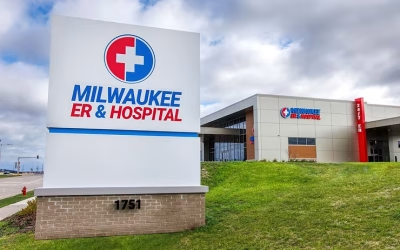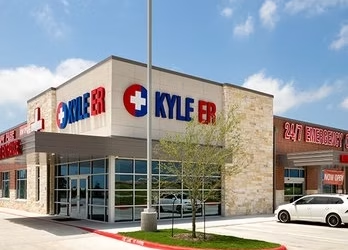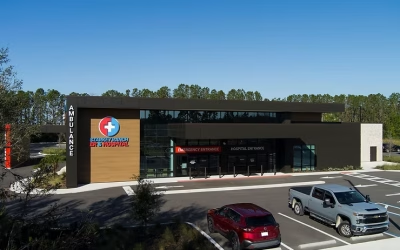Mental health and physical health are inextricably linked, with each having a profound impact on the other. This interconnectedness is especially evident in the context of physical rehabilitation hospitals, where patients often present with comorbid conditions. Understanding the correlation and interaction between mental health and comorbid physical conditions is crucial for providing comprehensive care and improving patient outcomes in these settings.
The Interplay Between Mental and Physical Health
Mental health disorders and chronic physical conditions frequently coexist, creating a complex interplay that can complicate treatment and recovery. Key aspects of this interplay include:
- Shared Risk Factors: Both mental and physical health conditions can stem from common risk factors such as genetics, lifestyle choices (e.g., smoking, poor diet, lack of exercise), and environmental stressors (e.g., trauma, socioeconomic status).
- Impact on Functionality: Mental health disorders can exacerbate the symptoms of physical illnesses, making it harder for patients to manage their conditions and adhere to treatment plans. Conversely, chronic physical conditions can lead to mental health issues such as depression and anxiety due to chronic pain, disability, and lifestyle changes.
- Biological Mechanisms: Inflammation, hormonal imbalances, and neurotransmitter dysregulation can contribute to both mental health disorders and physical illnesses, creating a bidirectional relationship.
Common Comorbidities in Rehabilitation Settings
Patients in physical rehabilitation hospitals often have multiple health issues that interact in complex ways. Common comorbid conditions include:
- Depression and Cardiovascular Disease: Depression is prevalent among patients with heart disease. It can negatively impact cardiac rehabilitation by reducing motivation for physical activity and adherence to medication regimens.
- Anxiety and Chronic Pain: Anxiety frequently co-occurs with chronic pain conditions such as arthritis, fibromyalgia, and back pain. This can lead to a cycle of increased pain perception and worsening anxiety symptoms.
- Substance Use Disorders and Trauma: Patients with substance use disorders often experience traumatic injuries that require rehabilitation. Substance abuse can complicate recovery by interfering with pain management and increasing the risk of complications.
- Cognitive Impairments and Stroke: Stroke survivors commonly experience cognitive impairments and depression, which can hinder their ability to participate in and benefit from rehabilitation therapies.
Challenges in Physical Rehabilitation Hospitals
The presence of mental health disorders in patients with comorbid physical conditions poses several challenges in rehabilitation settings:
- Assessment and Diagnosis: Identifying mental health disorders in patients with physical illnesses can be challenging due to overlapping symptoms and the focus on physical recovery.
- Integrated Care: Providing integrated care that addresses both mental and physical health needs is essential but can be difficult to implement due to fragmented healthcare systems and lack of coordination among providers.
- Patient Engagement: Mental health disorders can reduce patient motivation and engagement in rehabilitation activities, leading to poorer outcomes.
- Stigma: Stigma surrounding mental health can prevent patients from seeking help and disclosing their symptoms, further complicating diagnosis and treatment.
Strategies for Comprehensive Care
To effectively address the interplay between mental health and comorbid conditions in physical rehabilitation hospitals, a holistic and integrated approach is needed. Strategies include:
- Routine Screening: Implementing routine screening for mental health disorders in rehabilitation settings can help identify patients in need of psychological support.
- Interdisciplinary Teams: Creating interdisciplinary teams that include mental health professionals, such as psychologists and psychiatrists, alongside physical rehabilitation specialists can facilitate comprehensive care.
- Patient Education: Educating patients about the connection between mental and physical health can empower them to seek help and engage in their treatment plans.
- Individualized Treatment Plans: Developing individualized treatment plans that address both mental and physical health needs can improve adherence and outcomes.
- Support Services: Providing access to support services, such as counseling, support groups, and stress management programs, can help patients cope with the emotional challenges of rehabilitation.
Conclusion
The correlation between mental health and comorbid physical conditions is a critical consideration in physical rehabilitation hospitals. By recognizing and addressing the intricate relationship between these health aspects, healthcare providers can enhance patient care and outcomes. A holistic, integrated approach that combines physical and mental health interventions is essential for supporting patients on their journey to recovery and improved quality of life.
Athra Systems is a Veteran owned company that provides psychiatric consultations, medication management, follow-up appointments and behavior regulation within the inpatient rehabilitation hospital space. Visit www.AthraSystems.com to learn more or email trudloff@athrasystems.com.











